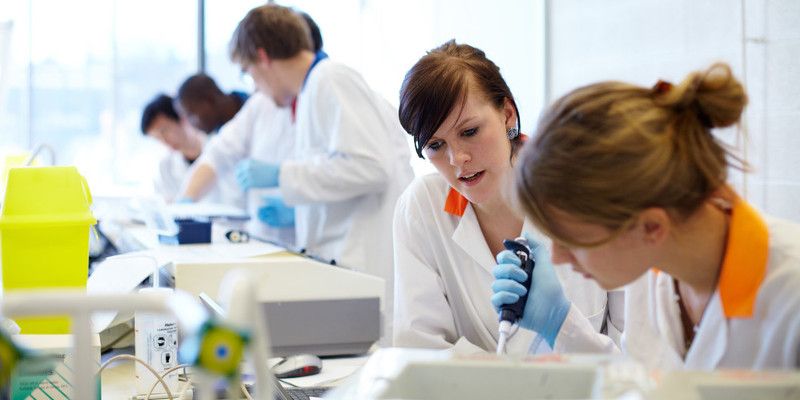
Over 50,000 people in Yorkshire and the Humber carry a faulty gene putting them at high risk of developing heart disease or sudden death, according to new estimates by the British Heart Foundation.
Of these, nearly 11,000 people in the University’s region are living with the specific faulty gene which causes hypertrophic cardiomyopathy (HCM).
University of Leeds researchers led by Professor Michelle Peckham from the Faculty of Biological Sciences are studying how changes in genes cause HCM, in an attempt to combat the disease.
Scientists have found that alterations in two genes called MYH7 and cMyBPC occur in around two thirds of cases of HCM. Understanding how these changes occur and their resulting effects could pave the way for new drugs to be targeted at them to cancel the changes.
HCM is an inherited disease of the heart muscle, where the muscle wall of the heart becomes thickened and stiff. This makes it harder for the heart to pump blood around the body. This can lead to heart failure and the potential disturbance of the electrical signals that trigger the heart to beat, causing a dangerous heart rhythm and cardiac arrest.
Currently there is no cure for HCM, but treatments are available to help control symptoms and prevent complications.
Professor Peckham is using a combination of approaches to determine why and how some of these alterations affect the structure of the myosin protein. Her team aims to work out how changes in this structure affect how forcefully the heart muscle can contract and ultimately how it leads to HCM.
Professor Peckham, whose research is funded by the BHF, said: “Patients are suffering every day from the effects of HCM, whether it’s a lack of energy or feeling dizzy and breathless. The psychological impact of a condition like this can also be very distressing.
“Our research is aimed at finding out why the heart muscle cells don’t contract normally. It’s essential that we understand more about how these alterations in genes lead to HCM, as this research may reveal new ways to treat the condition.”
The HCM condition affects one in 500 people in the UK and is the most common cause of sudden death in young people.
Further information
Figures in the first paragraph of this story are a BHF analysis of PHG Foundation, Heart to Heart: inherited cardiovascular conditions services (2009).
For more information and advice about inherited heart conditions and to support the BHF to fund more research to help end the devastation of heart disease visit www.bhf.org.uk/unexpected